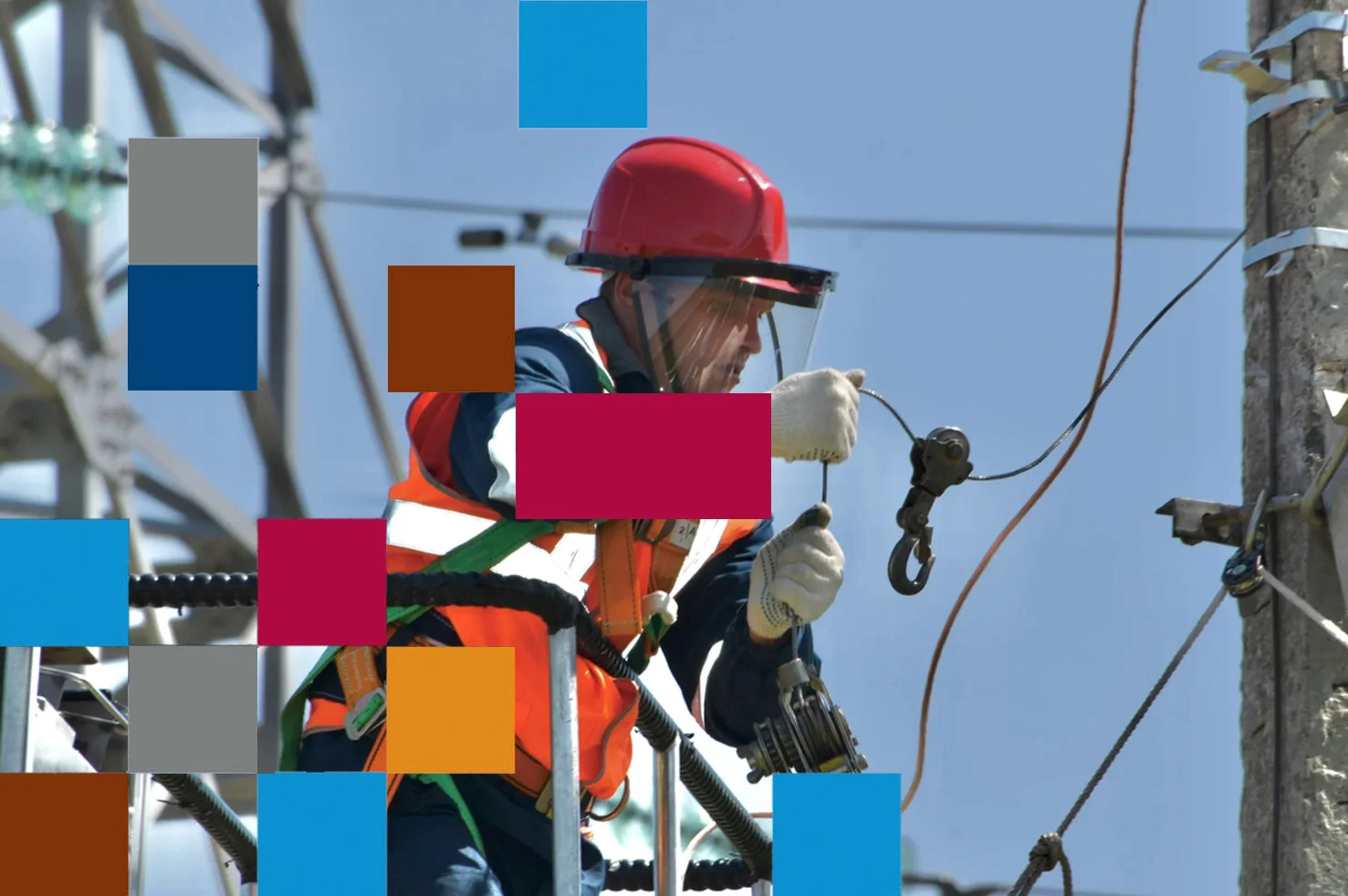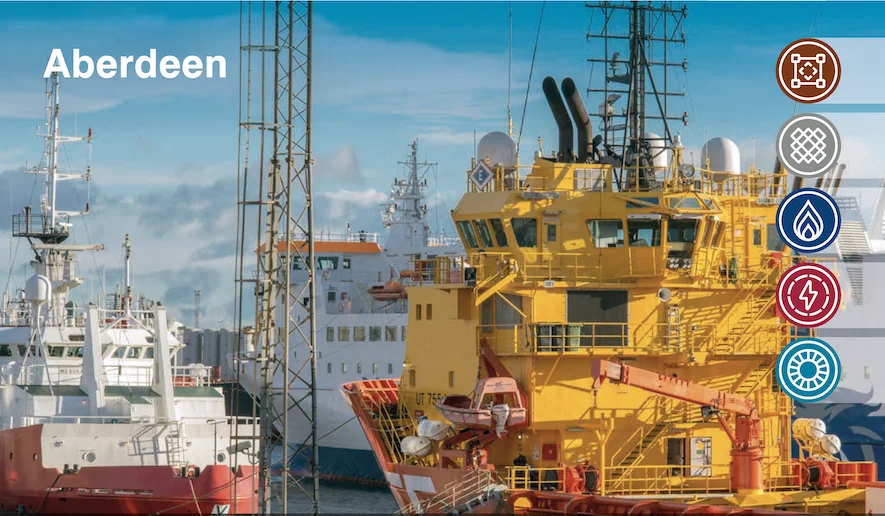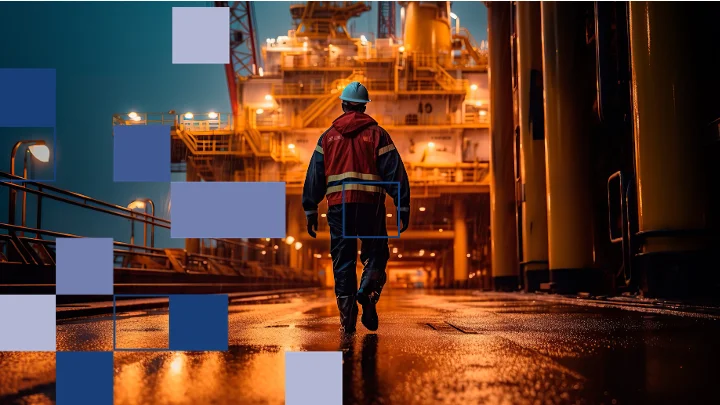How to Get a Work Visa for Qatar, UAE, and the US in Oil & Gas
04 Nov, 20258 mins
Oil and Gas Is Global - But Visas Still Matter
Oil and gas is one of the most international industries in the world, but even in a global market, you can’t start work without the right visa. Whether you’re an engineer, project manager, or offshore specialist, understanding visa rules is the first step before relocating.
In 2025, the most in-demand destinations for oil and gas professionals abroad are Qatar, the UAE, and the United States - three regions driving some of the world’s largest energy projects. Each offers strong career potential and competitive packages, but each also has a unique work visa process that can impact how quickly you start.
This guide breaks down what you need to know about oil and gas visas in each country, how sponsorship works, and how Orion’s international oil and gas recruitment team supports candidates once that visa is approved.
Qatar: How to Get a Work Visa for Oil and Gas Jobs in a Global LNG Hub
Few countries can rival Qatar when it comes to LNG. The North Field Expansion Project is among the largest energy projects on the planet and is expected to increase national LNG capacity from 77 to 126 million tonnes per annum (MTPA) by 2027, securing Qatar’s position as a global hub for gas exports.
This expansion has created continuous demand for skilled international talent. Marine engineers, offshore technicians and project engineers are frequently mobilised to the region through oil and gas recruitment networks.
Can I apply for a Qatar work visa myself?
For those considering a move, the process always begins with employer sponsorship. Unlike some countries, Qatar does not allow individuals to apply for a work visa for oil and gas jobs independently.
A company operating in the country must first offer you a role, and only then can it apply for the necessary paperwork on your behalf through the Qatari Ministry of Labour. The visa itself is tied to this employer, meaning that if you change jobs, a new permit is required.
What documents do I need to work in Qatar?
Most applicants will need:
- A valid passport (minimum six months validity)
- A signed employment contract
- Recent passport photographs
- Verified copies of qualifications
- A police clearance certificate from your home country
- Completed medical tests, including blood work and chest X-ray
All medical and legal checks are mandatory and ensure compliance with Qatari labour law.
How long does it take to get a Qatar work visa?
Processing times vary, but several weeks is typical. Most reputable employers begin arranging paperwork as soon as a contract is signed to minimise delays. Costs are covered by the employer. The main challenge tends to be attesting qualifications, which can be time-consuming if documents have not already been legalised.
Why Qatar attracts international oil and gas talent
For those who succeed, the rewards are considerable. Competitive salaries, exposure to world-scale projects and the chance to work alongside international peers make Qatar one of the most appealing destinations for professionals seeking oil and gas jobs abroad.
How Orion supports international recruitment
Orion does not arrange visas directly, but we partner with employers who sponsor candidates. Once sponsorship is secured, we coordinate mobilisation and onboarding from medicals and travel, to documentation and compliance.
As a global oil and gas recruitment agency, our goal is to make relocation seamless so that projects stay on track and candidates can focus on their new roles.
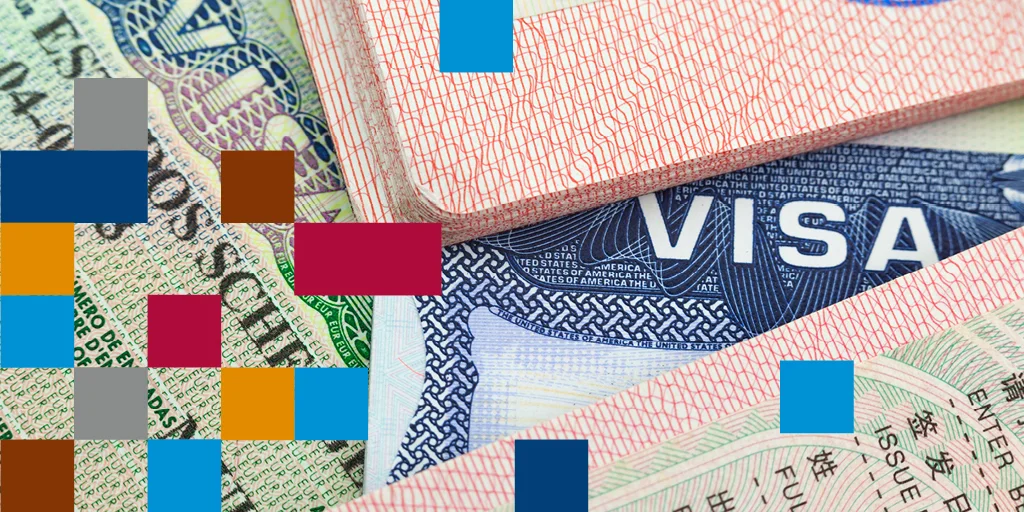
UAE: How to Get a Work Visa for Oil and Gas Jobs in a Global Expat Hub
The United Arab Emirates has long been a favourite for oil and gas professionals, and for good reason. Abu Dhabi is home to major upstream and refining operations, while Dubai has positioned itself as a hub for project management and support services. Tax-free salaries remain a major attraction, as do the large-scale developments that define the region.
According to the UAE Ministry of Economy, the country’s energy sector contributes more than 30% of total GDP, and ongoing investment in refining and petrochemical projects continues to draw skilled international workers.
Can I apply for a UAE work visa myself?
No. As with Qatar, a UAE work permit can only be arranged through employer sponsorship. The process begins once a company offers you a role.
The employer first secures an entry permit, which allows you to travel to the UAE. When you arrive, you must complete a medical examination and biometric registration, before receiving your Emirates ID and residence visa. This visa grants you the legal right to live and work in the country for the duration of your contract.
What documents do I need to work in the UAE?
Documentation requirements are straightforward:
- A valid passport (minimum six months validity)
- A signed employment contract
- Passport photographs
- In some cases, attested qualifications
Employers handle most of the administration, but candidates must respond quickly to requests for documentation to avoid delays.
Are there any challenges when changing employers?
Yes. Visas in the UAE are tied to specific sponsors, so transferring or reissuing permits can take time. In some cases, candidates may need to exit and re-enter the UAE to complete the process. However, compared with many regions, the UAE’s work visa system is one of the most streamlined and accessible for expatriates.
Why the UAE remains a top destination for oil and gas recruitment
Demand is consistently strong across the sector. Pipeline inspectors, project controls specialists, instrumentation engineers and rotating equipment experts are among the roles most frequently filled by international hires. Employers recognise the value of overseas experience and often rely on global oil and gas recruiters to source and mobilise skilled professionals.
How Orion supports international mobilisation
Orion does not arrange visas directly, but we work with clients who sponsor candidates through their official channels. Once sponsorship is confirmed, our team oversees mobilisation and onboarding including medicals, travel and compliance documentation.
As a trusted oil and gas recruitment agency, Orion ensures candidates are ready for work from day one, supporting both project delivery and client timelines.
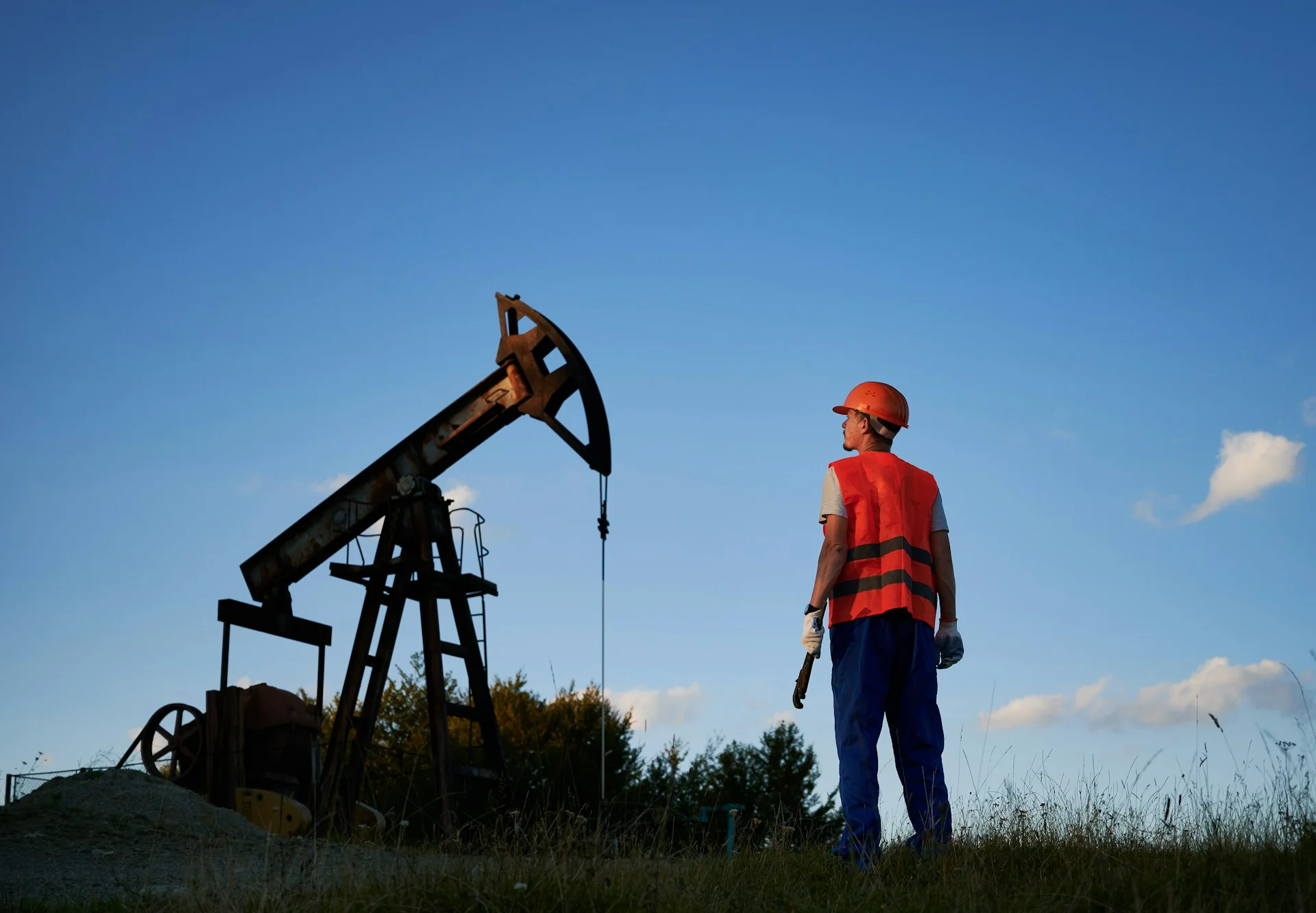
The United States: Opportunities with Extra Hurdle
The United States remains one of the largest and most technologically advanced oil and gas markets in the world. From shale plays in Texas to offshore drilling in the Gulf of Mexico, it offers some of the industry’s most complex and rewarding projects. For many engineers, it represents the pinnacle of career opportunity.
However, it is also one of the most challenging environments for visa sponsorship. Unlike Qatar or the UAE, where sponsorship systems are relatively straightforward, the US has strict immigration limits and visa caps that make the process highly competitive.
According to the US Bureau of Labor Statistics, the oil and gas extraction sector employs more than 130,000 people directly, with wider industry employment surpassing 600,000, highlighting its ongoing scale and need for international expertise.
Which US work visas are available for engineers and oil and gas professionals?
The most common pathway is the H-1B visa, designed for specialised occupations such as engineers, data analysts and project managers. This route is capped annually and operates through a lottery system, making it unpredictable.
Alternative routes include:
- L-1 visa – for intra-company transfers between international branches.
- TN visa – available to Canadian and Mexican nationals under the USMCA agreement, covering certain engineering and technical roles.
How difficult is it to get a US engineer work visa?
The process can be lengthy. Applications often take several months to complete, and employers must handle most of the cost and administration. As of 2024, H-1B visa fees are expected to rise, increasing financial pressure on sponsoring companies and potentially reducing the number of employers offering sponsorships.
What roles are in demand in the US oil and gas market?
Despite these challenges, demand for international talent remains high in key specialisms. Roles such as process engineers, E&I designers, safety engineers, schedulers and drilling supervisors continue to feature heavily in employer searches and international recruitment campaigns.
For candidates, the best approach is to align with companies that have a strong record of visa sponsorship and a clear need for niche expertise, that may not be widely available in the domestic market.
How Orion supports international recruitment
Orion does not manage visas directly, but we partner with employers who sponsor qualified candidates. Once sponsorship is confirmed, our team coordinates mobilisation and onboarding, from medicals and compliance checks to training and travel.
As a global oil and gas recruitment agency, we focus on making relocation as efficient as possible so that both projects and candidates can move forward without delays.
Mobilisation: Beyond the Visa in Oil and Gas Recruitment
Securing a visa is only the first step in starting a new job overseas. The real work begins once sponsorship is approved. Between medical testing, safety certifications, insurance and travel logistics, every part of mobilisation has to be coordinated carefully to avoid project delays.
In oil and gas, mobilisation is what ensures that candidates arrive on site safely, legally and on time. For offshore professionals, this often includes Basic Offshore Safety Induction and Emergency Training (BOSIET), along with other region-specific survival or compliance courses. Many employers also require pre-deployment drug testing and background checks, particularly for refinery or LNG operations.
What does mobilisation include?
Typical mobilisation steps for oil and gas jobs abroad include:
- Verification of all legal documents and visa approvals
- Completion of mandatory medical and health checks
- Certification renewals (for offshore or technical roles)
- Insurance and security clearances
- Flights, accommodation and ground transport planning
- Site induction and pre-departure briefings
Each of these tasks has its own compliance risks, which is why experienced coordination matters.
How Orion supports mobilisation for oil and gas projects
At Orion, we specialise in managing these steps once employers secure visa sponsorship for their new hires. With a global network of offices and long-term partnerships across energy markets, we have mobilised thousands of professionals into Qatar, the UAE and the United States.
Our goal is simple - to reduce risk, remove stress and make sure projects stay fully staffed. Every process is handled with precision, from medical checks and safety training, to travel coordination and onboarding.
Candidate experience matters
Mobilisation is often where the real test of candidate support begins. When handled well, it builds confidence before a new hire even reaches site. When handled badly, it delays entire projects.
One candidate recently shared how valuable this support was:
“The visa was handled by the client, but Orion made sure everything else was sorted. From medical checks to flights, I felt supported at every stage. It meant I could focus on my new role rather than worry about logistics.”
That’s the point of effective mobilisation. It’s not just admin. It’s what keeps people focused and projects moving.
Final Thoughts: Taking the next step in your oil and gas career
For oil and gas professionals, working abroad still offers some of the best career opportunities in the industry. The rewards go beyond salary. International roles bring exposure to large-scale projects, advanced technologies, and experience, that is recognised worldwide. Relocation also gives professionals the chance to work across cultures and contribute to the ongoing energy transition.
None of this is possible without the right visa. Qatar and the UAE have clear employer-led systems that simplify the process for sponsored candidates, while the United States continues to offer high-value opportunities with stricter requirements and longer approval timelines. Understanding each country’s process is key to securing the right role.
At Orion, our focus is on what happens next - once sponsorship is confirmed. We make sure every step, from documentation and medicals to travel and onboarding, runs smoothly. With decades of experience in oil and gas recruitment, we understand how to move people safely, compliantly and on schedule.
In 2025, demand for international oil and gas jobs remains strong. For candidates willing to navigate the visa process, opportunities in Qatar, the UAE and the United States can be genuinely career-defining.
Contact Us today!

